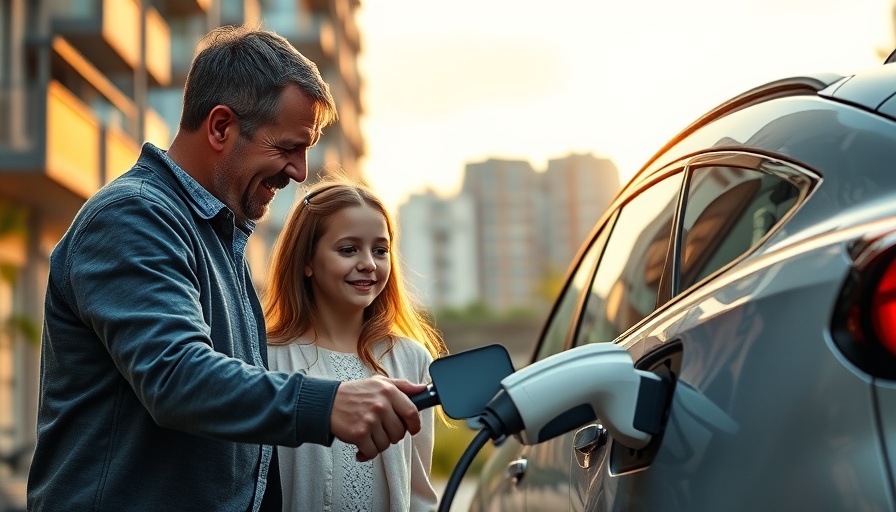
EV Tax Credit Update: Why Timing is Crucial
For homeowners eyeing the potential savings of electric vehicles (EVs), a pressing window is about to close. The EV tax credit, a significant financial incentive for those considering the switch to electric, is set to expire on September 30, making now the critical time for buyers.
The updated IRS guidelines offer a glimmer of hope—buyers need only secure a "written binding contract" by the deadline, allowing for vehicle possession afterward. This detail can turn what seems like a racing clock into a strategic opportunity for savings.
Understanding the Financial Impact of EV Purchases
With a potential discount of up to $7,500 for new EVs and $4,000 for used ones, the financial incentives for making the switch are enticing. Yet, many consumers still lean towards gas and hybrid vehicles, revealing a disconnect between available incentives and consumer adoption. According to recent reports, EV sales surged by 26.4% from June to July of this year, spurred largely by this impending deadline. However, with inventory depleting by over 32%, prospective buyers may find themselves in a more competitive market...
Why EVs are Not Just a Trend
The rise in EV adoption isn’t merely about incentives; it’s indicative of a broader trend in sustainable living that directly connects to financial savings. Homeowners investing in solar energy systems often seek to maximize their return on investment (ROI), and pairing solar with an EV can enhance savings significantly. Charging an electric vehicle through solar energy not only reduces energy costs but also supports an environmentally friendly lifestyle.
Navigating the Complex Market: Tips for Homeowners
For those looking to leverage the EV tax credit, understanding the landscape is vital. Researching eligible models that qualify for the tax credit is the first step. Resources online provide lists of vehicles that meet the EPA’s criteria, ensuring that buyers know exactly what to consider.
Additionally, financing options are crucial for maximizing savings. Many companies now offer incentives for environmentally friendly vehicles, and understanding these can have lasting financial implications. For homeowners already invested in solar energy, this could be a seamless transition to a more sustainable lifestyle.
Future Trends in EV Adoption
Looking ahead, it's important to realize that while the expiration of the tax credit might seem like a setback, it’s also a stepping stone towards more comprehensive policies that promote sustainable vehicles. As battery technology improves and infrastructure develops, the EV market is expected to flourish, making it imperative for potential buyers to consider their options sooner rather than later.
Final Thoughts: Why Buyers Should Act Now
With merely a month left to benefit from the EV tax credit, the urgency for homeowners is palpable. Reducing energy costs and maximizing ROI through strategic financial planning should motivate prospective buyers to take action now. As the market represents a shifting priority toward sustainability, your decision to act today is a statement against climate change while also benefiting your finances.
Don't miss out on this opportunity to save thousands. Begin your journey toward owning an EV and enhance your green living journey through solar energy system integration.
 Add Row
Add Row  Add
Add 



Write A Comment